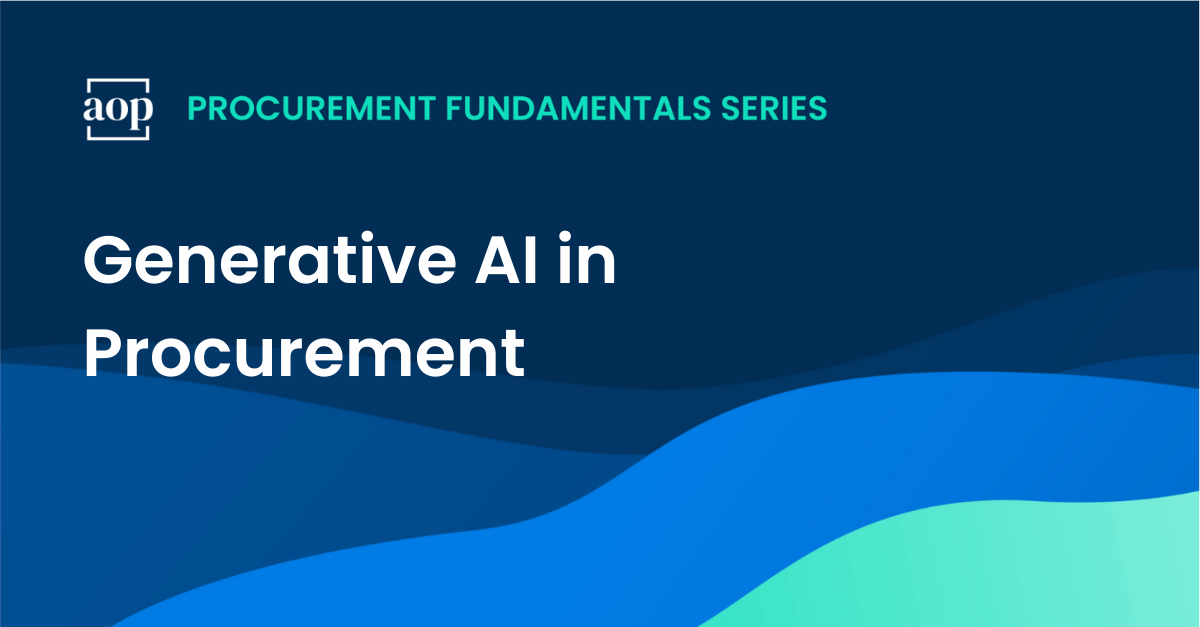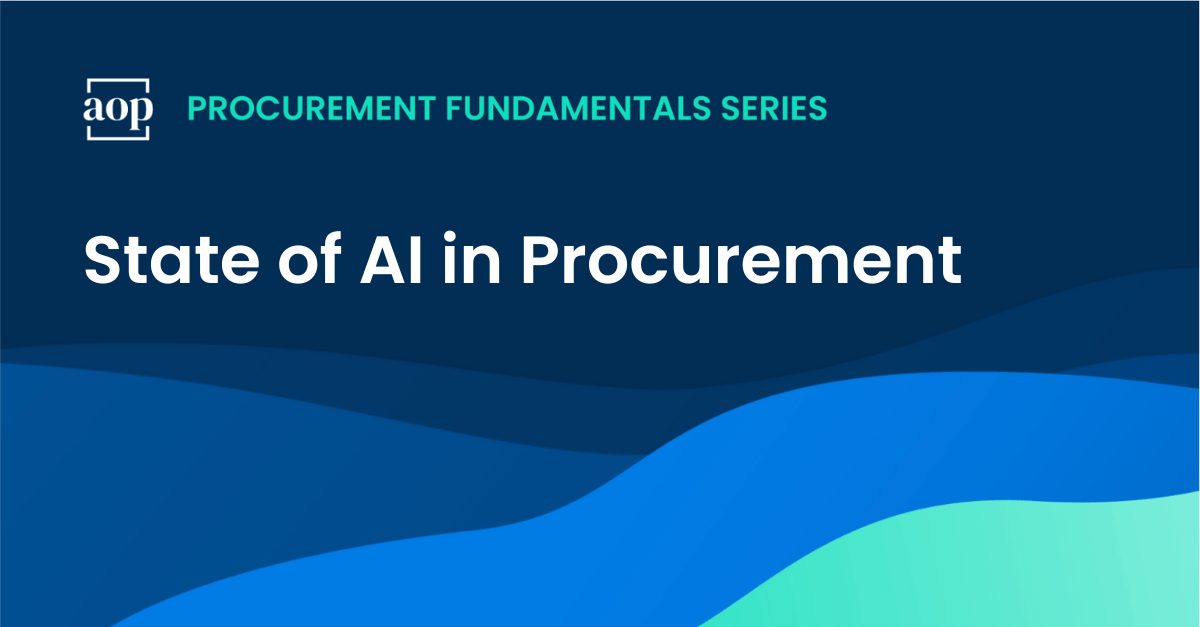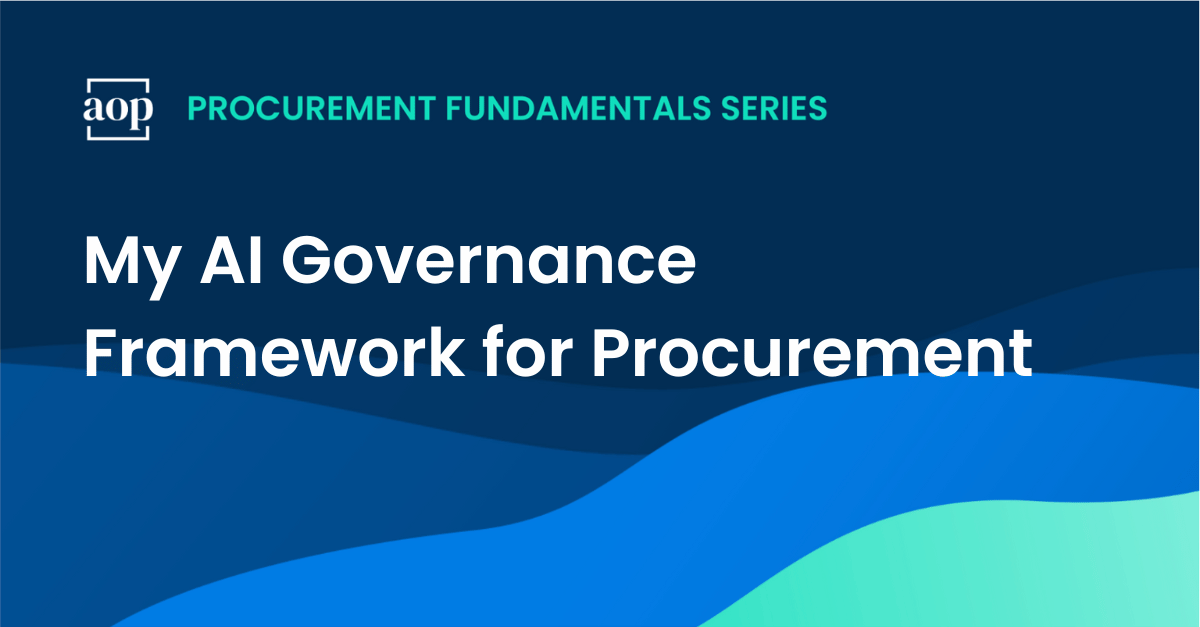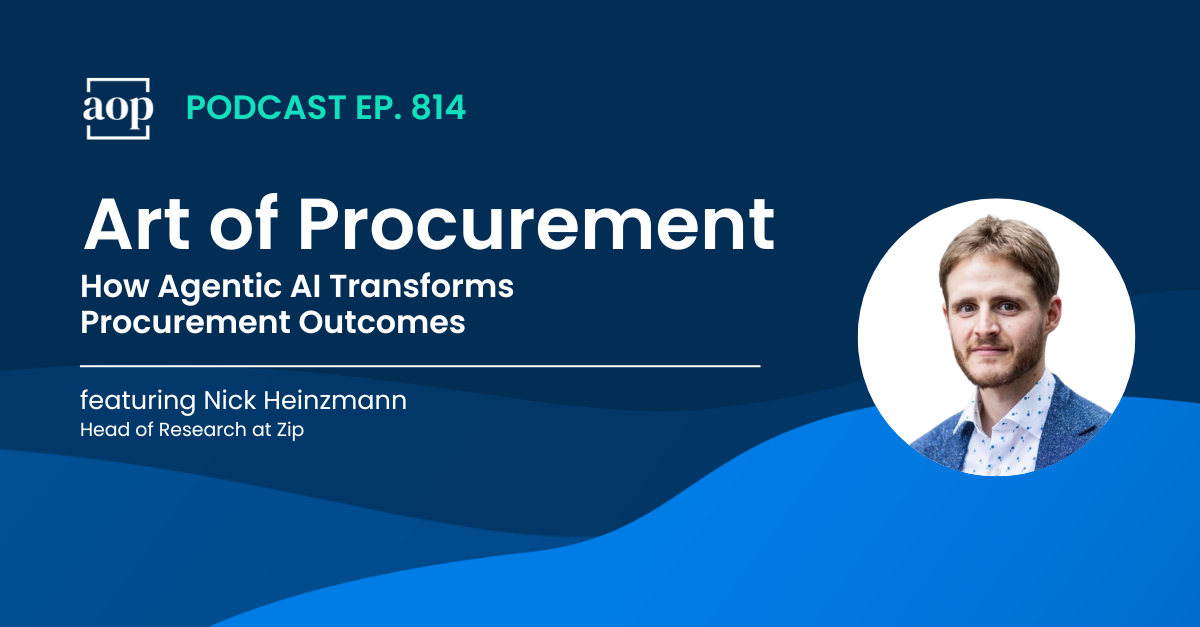5 min read
Generative AI in Procurement - Opportunities and Challenges Highlighted by AI at Wharton Study
Philip Ideson : Updated on December 28, 2024

According to fresh research by AI at Wharton, generative AI adoption in business took a massive leap forward from 2023 to 2024. Interestingly, procurement has emerged as the leading adopter of generative AI tools across the enterprise.
Let’s summarize what this groundbreaking research tells about the role of Gen AI in procurement today, and how you can take advantage of the opportunities while avoiding common pitfalls in your own plans ahead.
Procurement Leads Generative AI Adoption
Procurement’s adoption of generative AI has nearly doubled over the last year, evolving from niche experiments to weekly use by key decision-makers. The report "Growing Up: Navigating Gen AI’s Early Years" from AI at Wharton and GBK Collective reveals that 94 percent of procurement teams are now leveraging generative AI tools, up from 50 percent in 2023.
This rapid growth outpaces even traditionally tech-focused areas like product development and engineering, which rose from 40 percent to 78 percent. finance, IT, and HR have seen moderate increases, with IT reaching 75 percent and finance maintaining a strong 76 percent. Marketing, sales, and operations are still catching up, with adoption rates of 62 percent and 50 percent, respectively.
How generative AI is used by enterprise professionals
More than 800 senior business leaders participated in the research developed by AI at Wharton and GBK Collective, giving an exceptionally detailed view into how generative AI is being used by decision makers in enterprise businesses.
Generative AI is already broadly used across various business tasks and functions. The top purposes include document and proposal writing (64 percent), data analysis (62 percent), and meeting summarization (59 percent). The wide array of applications highlights generative AI’s versatility in handling both creative and administrative tasks, proving its value across different organizational needs.
From the perspective of procurement, some of the biggest Gen AI benefits can include:
- Document and proposal writing: 64 percent of respondents are using generative AI for tasks like drafting contracts, RFQs, and internal reports. This helps streamline document creation, ensuring consistency and saving valuable time.
- Data analysis and analytics: 62 percent of respondents are leveraging AI for data analysis. This allows procurement teams to quickly derive insights from vast data sets, make data-driven decisions, and enhance the quality of analyses.
- Evidence for data-driven decisions: 57 percent of enterprise decision makers already use generative AI tools to inform decision making. In the case of procurement, this could include unstructured supplier or market data.
- Predictive supplier behavior and risk management: Generative AI can be utilized for predicting supplier behaviors and managing risks, enabling more strategic sourcing and better preparedness for potential disruptions.
On a broader level, generative AI tools can give procurement executives a new perspective on day-to-day tasks. AI can assist in generating ideas, supporting innovation in strategic procurement initiatives, and helping procurement teams think beyond conventional strategies. Generative AI can quickly summarize meetings and extract action points, saving time and increasing productivity. With so many different applications, it’s no wonder that 9 in 10 procurement decision makers already use generative AI tools on a weekly basis.
Challenges and Barriers to Adoption of Generative AI
While enthusiasm for AI is high, the report shows that only 27 percent of larger enterprises allow unrestricted use of generative AI tools, primarily due to data security and compliance concerns. For procurement teams, ensuring that AI-driven processes adhere to corporate governance and regulatory requirements is a top priority.
The procurement community is still grappling with unique challenges when it comes to integrating generative AI technologies. The most significant barriers identified by decision-makers include data privacy concerns, integration with existing systems, and accuracy. Procurement often involves sensitive supplier and pricing information, which brings added scrutiny regarding how data is handled by AI tools.
Perhaps more importantly, procurement decision-makers remain some of the most skeptical about the overall value generative AI can have on their work. According to the report, only 35 percent of procurement leaders view generative AI as having a high impact on their function, compared to significantly higher percentages in departments like IT (58 perceny) and business intelligence (46%). This skepticism largely stems from concerns about data privacy, integration challenges, and uncertainty regarding the measurable return on investment.
How Procurement organizations invest in AI
According to the research by AI at Wharton and GBK Collective, enterprise spending on generative AI has more than doubled since 2023, with average investments increasing from $4.5 Million to $10.3 Million. While investments have surged, we’re likely to see even bigger budgets in the coming years. Procurement organizations are among the likeliest to have budgets greater than $10 Million on AI investments in 2025.
As generative AI matures, it will likely bring even greater impact to procurement—provided that companies find effective ways to measure ROI and manage potential risks. Currently, 72 percent of companies plan to increase their generative AI budget in 2025, although growth may slow as they focus on optimizing and expanding the internal capabilities built around these tools.
How you can educate yourself on the opportunity of generative AI
While investments in generative AI tools are high, research from AI at Wharton shows that Procurement teams are among the least likely to invest in generative AI training, with just 41 percent of teams investing in courses on AI and 31 percent holding internal workshops or seminars on the topic.
To get a better understanding of how procurement can elevate investments in training, we recently invited Mary Purk, Executive Director for AI at Wharton, and one of the study leaders and authors of the research, to share more insights on the Art of Procurement podcast.
Here are a few tips inspired by Mary Purk’s advice that can help procurement executives become more informed about the opportunity in generative AI:
-
Start with free resources: Leverage the wealth of free resources available online. Head over to Microsoft's AI Learning Hub, or explore the numerous online courses, articles, and webinars that offer foundational knowledge in AI.
-
Daily commitment and consistency: Make AI learning part of your regular routine, like a workout. Allocate time each week specifically to learning about AI. Keep a diary or use a tracking method to hold yourself accountable and stay consistent.
-
Identify your personal learning preferences: Determine how you learn best. Whether it's listening to podcasts, reading articles, or attending webinars, use the medium that suits you.
-
Be curious and proactive: Stay curious and lean into learning. You need genuine interest to understand and apply AI effectively. Make it a habit to dig into how AI can be practically applied to your work, and set a clear focus on the areas most relevant to your role.
-
Seek and track practical applications: Develop a perspective on what specific aspects of AI you want to learn and track how they can be applied to your business. Use webinars, books, and curated industry resources to build a clear, structured understanding that benefits your work.
Remember also that adopting generative AI is a team effort. For procurement teams, the keys to successful adoption are selecting scalable use cases and creating organizational structures that can adapt to new technologies. This may involve building dedicated AI teams, developing internal guidelines, and providing more hands-on training to team members, all of which will help bridge knowledge gaps and foster a culture of experimentation.
Seize the Opportunity with Generative AI
As shown by recent research from AI at Wharton, generative AI represents a transformational opportunity for procurement. As a procurement executive, you have the power to leverage AI to do far more than just automate routine tasks; you can reshape procurement to become more strategic, data-driven, and efficient.
While many in procurement have been quick to adopt generative AI tools, we are still in the early days of realizing its full potential. One of the most impactful actions you can take is to deepen your understanding of the opportunities ahead and invest time and resources into educating your team on effectively leveraging generative AI.
Related articles and resources:
- Unleashing the Power of Generative AI - On-demand Webinar with Lance Younger and Nick Heinzmann
- Generative AI and the Future of Procurement Value Creation - Downloadable guide with Ivalua
- Renaissance vs. Resistance: Embracing Human-Centric AI - On-demand webinar with Darshan Deshmukh
- Artistic Revolutions - Comparing the Impact of Photography and Generative AI - Art of Supply podcast episode with Kelly Barner
- Reflections of an AI Contrarian - Podcast episode with Alan Veeck






